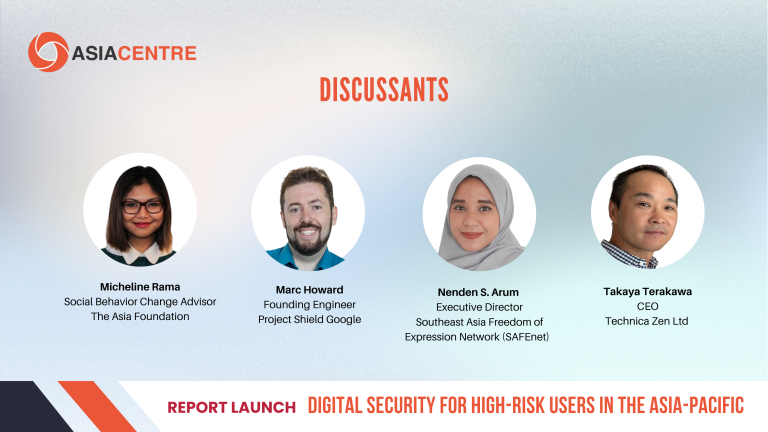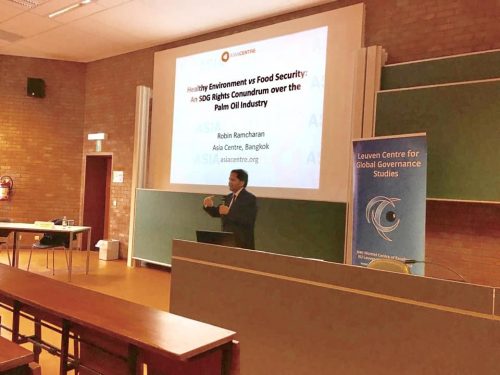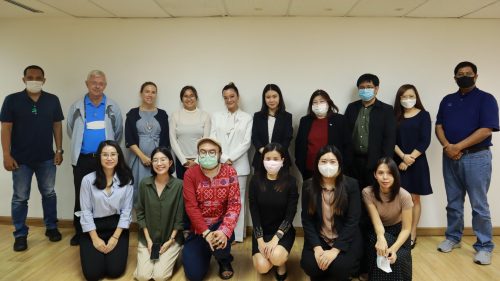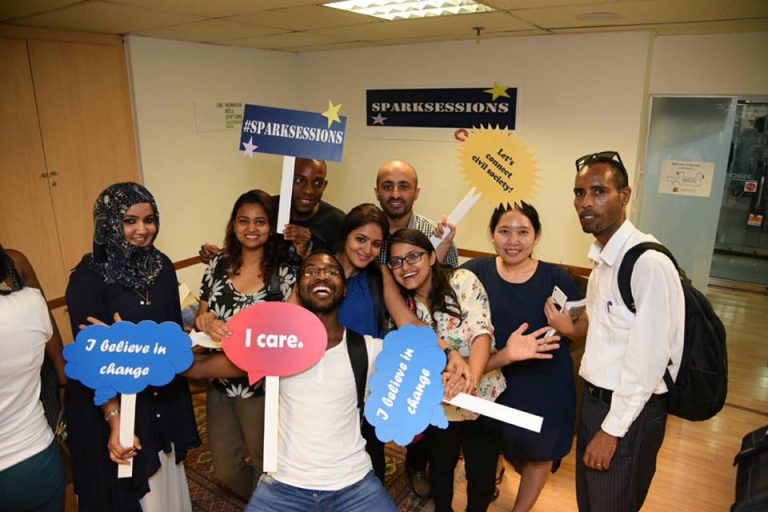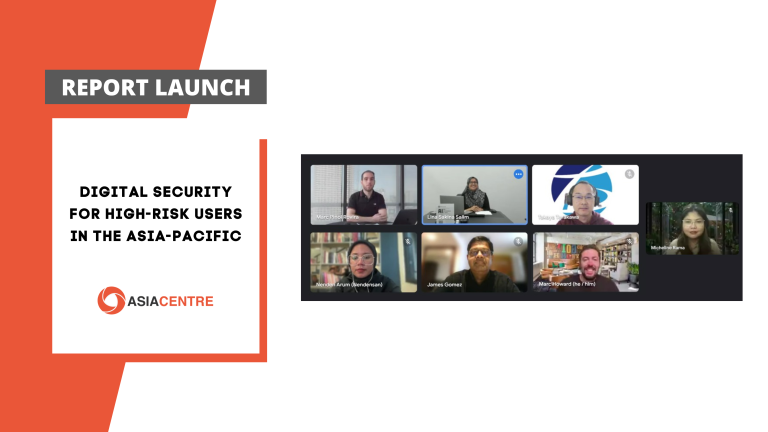
On 10 December 2024, the Asia Centre hosted the online launch of its latest report, Digital Security for High-Risk Users in the Asia-Pacific: Needs Assessment Report. The event attracted about 50 participants and featured insights from experts in digital security, citizen participation, and technology.
Dr James Gomez, Regional Director of the Asia Centre, delivered the opening remarks, highlighting the crucial importance of digital security for rights defenders. He also addressed the growing role of artificial intelligence (AI) in human rights advocacy, noting its potential to enhance the digital knowledge and operations of civil society organisations (CSOs).
To this end, he announced the theme for the Asia Centre’s annual conference, “AI and Governance in Asia: Civil Society, Democracy and Media” scheduled for 20-22 August 2025 in Bangkok, Thailand. The conference aims to bring together key stakeholders from the region and beyond, including international non-governmental organisations (INGOs), local civil society organisations (CSOs), technology companies, development agencies, and other relevant actors, to engage in discussions around AI’s impact on democracy and human rights sectors and CSOs response to it.
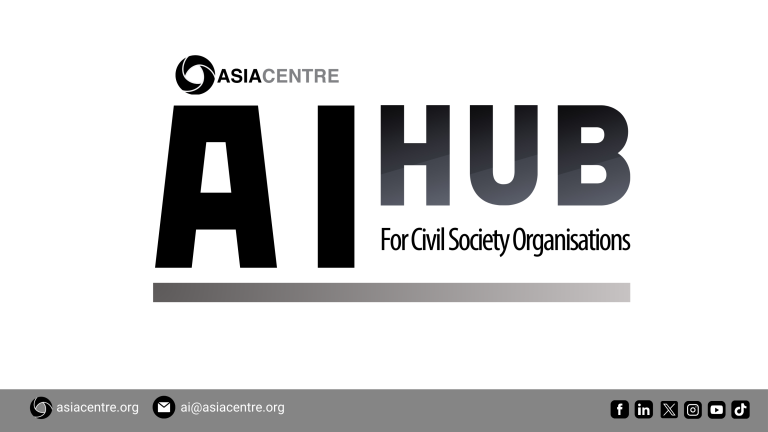
Additionally, Dr Gomez introduced Asia Centre’s newly established AI Hub for Civil Society Organisations, located in Bangkok, Thailand. The AI Hub is designed to serve as a resource and focal point for CSOs both in Asia and beyond to provide support for their digital transformation by incorporating AI as a central tool in their operations. Through its research, capacity-building initiatives, and advocacy efforts, the Hub will also support CSOs in understanding and leveraging AI in ways that align with their mission and contribute positively to democracy and human rights.
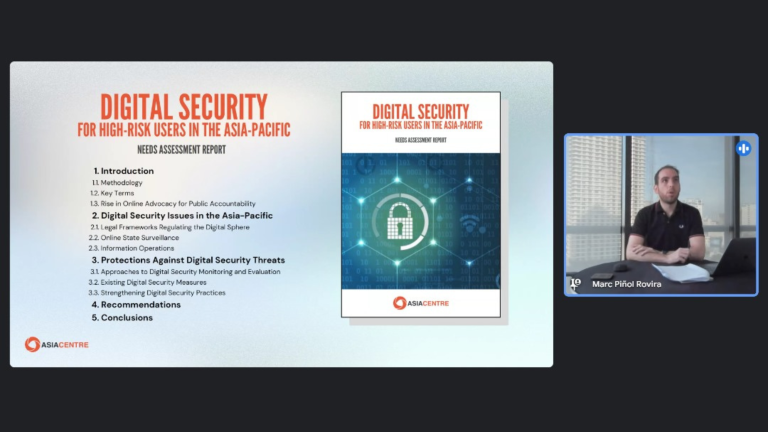
Following the opening remarks, the report overview and its key findings were presented by the Asia Centre’s Research Manager, Dr Marc Pinol Rovira. He identified three critical elements affecting digital security in the Asia-Pacific region.
First, while digital transformation has provided significant benefits to actors such as rights defenders and journalists in promoting public accountability, emerging threats—including government misuse of legal frameworks, online surveillance, and information operations—undermine the potential of these internet-based tools. These challenges are further exacerbated by limited digital literacy and a relative lack of skills and resources necessary to effectively counter these threats.
Second, Dr Pinol Rovira highlighted the diversity and sheer volume of threat sources as a key challenge, adding complexity to the development of effective solutions against digital security threats. He noted that many high-risk users tend to adopt a reactive approach to digital security threats rather than a proactive one. Although awareness of the importance of digital security is increasing, limited resources and rapidly evolving technologies often hinder the implementation of proactive measures.
Third, he emphasised key recommendations from the report. He stressed the importance of creating tailored digital security training programmes for specific contexts, underscoring the need for comprehensive, evidence-based research to inform curriculum development. For such initiatives to succeed, he called on government agencies, organisations, and individual high-risk users to prioritise digital security in their strategies, advocating for increased training opportunities and resources.
Following the report presentation, a discussion on the key findings ensued, featuring four commentators who provided additional insights into the report while drawing from their own experiences in the digital security sector.
Micheline Rama, Social Behavior Change Advisor at The Asia Foundation, emphasised the importance of inclusive digital security mechanisms, advocating for security measures tailored to local contexts. She stressed that such measures should be affordable and accessible to local organisations, adding that effective security measures require collaboration between digital experts and local organisations to ensure relevance and practicality.
Marc Howard, Founding Engineer of Project Shied at Google highlighted the shared responsibilities between platform owners and users in ensuring digital security. He noted that users should adopt protective measures such as VPNs and two-factor authentication. Meanwhile, platform owners must ensure the safety of their platforms, taking proactive measures to prevent potential data breaches that could compromise users’ data.
Nenden S. Arum, Executive Director at SAFEnet focused on the psychological impact of digital threats on users and their overall well-being. She suggested that training modules should address these aspects and reiterated Micheline’s recommendation for localised and tailored training. She also advocated for using simpler language in the modules to enhance accessibility and comprehension.
Lastly, Takaya Terakawa, CEO of Technica Zen Ltd., emphasised the critical role of the private sector and corporate entities in advancing digital security. He advocated for businesses to assume responsibility by organising training programmes aimed at equipping users with the essential skills and knowledge needed to navigate the digital landscape securely.
The event concluded with a Q&A session that addressed pressing topics, including the lack of specific data on digital security attacks targeting different groups, the limitations of existing security tools, and strategies to counter government restrictions on social media access.
Participants provided several key suggestions to tackle these challenges. They highlighted the importance of using services like AccessNow to provide specific support for high-risk users. Additionally, they emphasised the need for tailored tools and solutions to address the unique risks faced by various groups. Furthermore, the panelists agreed on the value of a multistakeholder approach, involving governments, civil society organisations, and the private sector, to enhance digital security training.
This event underscores the Asia Centre’s commitment to exploring how the opportunities presented by internet-based digital technologies can be harnessed for the greater good, benefiting all sectors of society. The Centre is dedicated to ensuring that this process remains inclusive and multi-stakeholder-focused, fostering collaboration among various groups.
Looking ahead to 2025, with the Asia Centre’s annual conference on AI and Governance and the operations of the AI Hub for Civil Society Organisations, the Centre aims to strengthen existing partnerships while establishing new ones. This strategic direction seeks to ensure that internet-based tools, particularly those involving AI, are used responsibly and for the benefit of society as a whole.
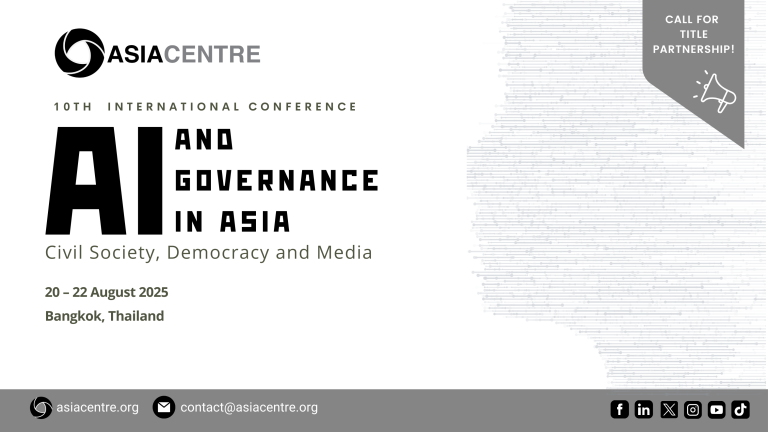
The International Conference is Asia Centre’s annual event where it brings together its partners to share the outcomes of their programmes and network for future collaborations. Over the years, the conference has become a platform for a range of actors to meet and discuss key democracy and human rights issues.
If you would like to become a Conference partner for Asia Centre’s 10th International Conference “AI and Governance in Asia” or explore other collaboration opportunities, email us at contact@asiacentre.org. For more information, click here.
Read and download the full report here.
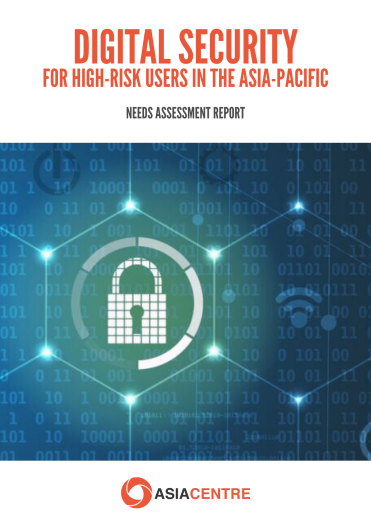
Asia Centre is a civil society research institute in Special Consultative Status with the United Nations Economic and Social Council. It serves as a knowledge partner and undertakes evidence-based research as well as provides capacity-building training for end beneficiaries. If you would like to collaborate with the Centre, please send an expression of interest to contact@asiacentre.org.
Follow Asia Centre’s social media channels for more information.

